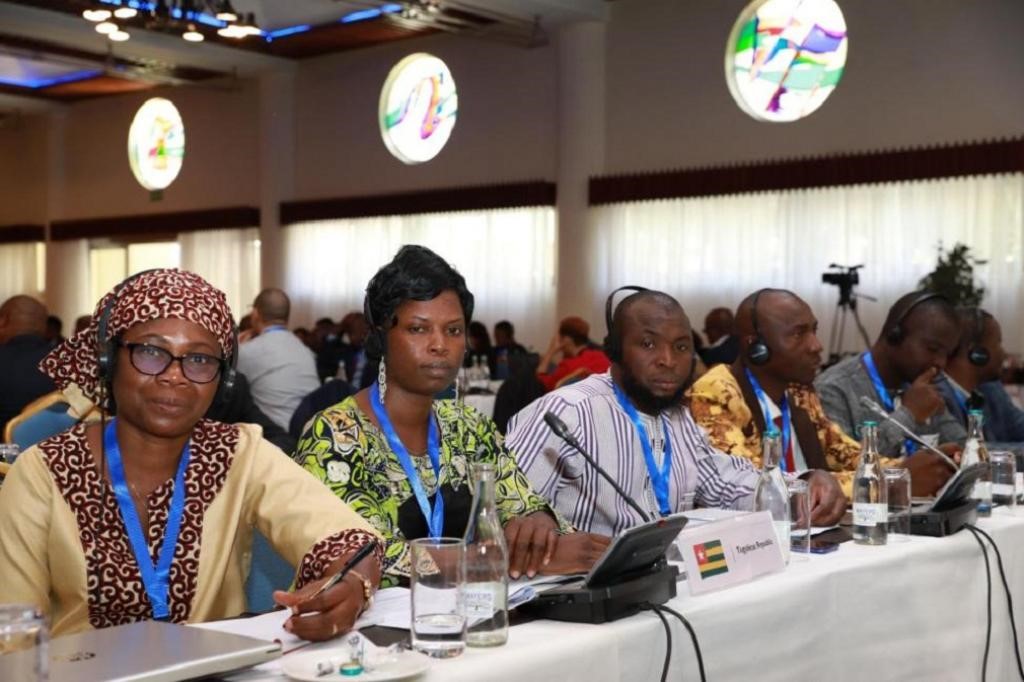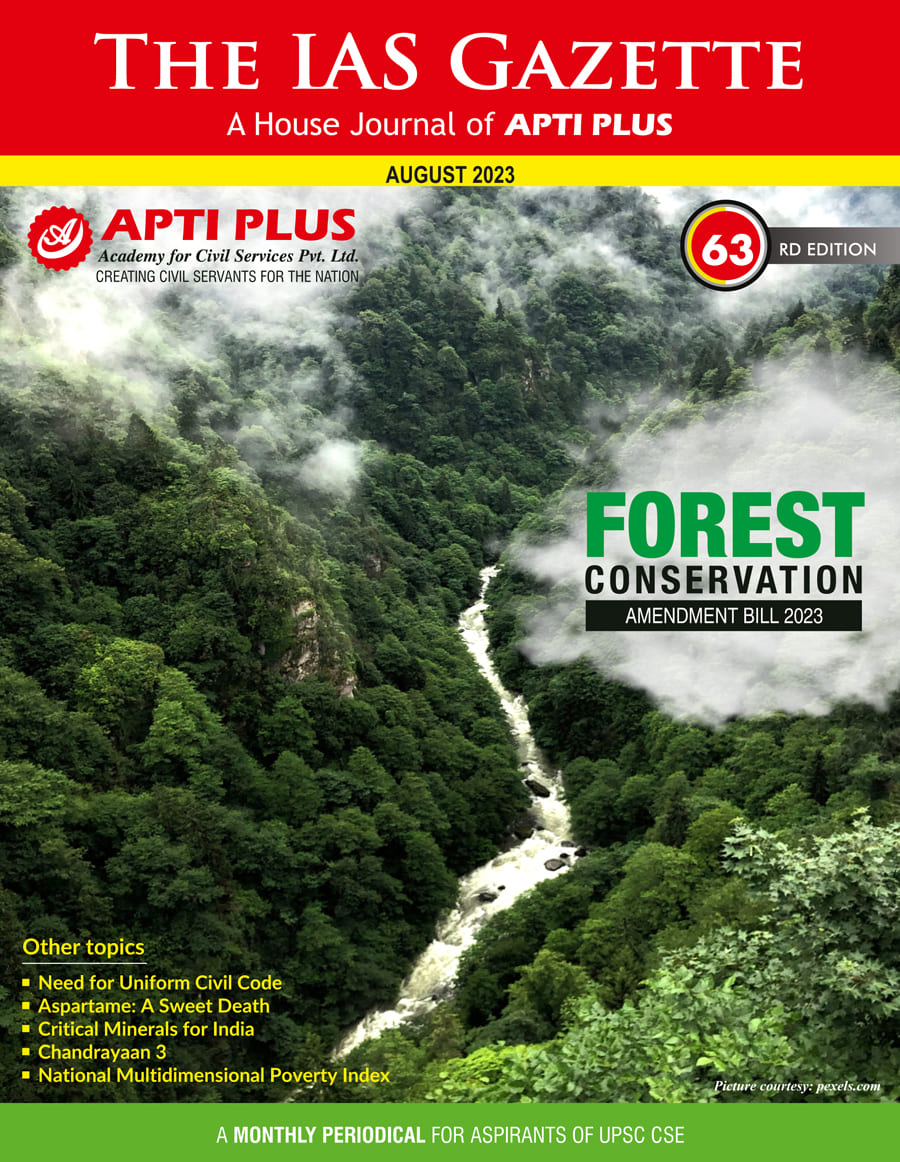
Disclaimer: Copyright infringement not intended.
Context
- The Kampala Ministerial Declaration on Migration, Environment, and Climate Change (KDMECC) has garnered support from 48 African countries, highlighting the continent's collective commitment to tackling the interplay of human mobility and climate change.
Details
Expansion of KDMECC
- The KDMECC, originally endorsed by 15 African states in Kampala, Uganda in July 2022, seeks to address climate-induced migration practically and effectively.
- A Conference of States, co-hosted by Kenya and Uganda with support from the International Organization for Migration (IOM) and the United Nations Framework Convention on Climate Change (UNFCCC), discussed the continental expansion of KDMECC.
- This expansion allows African states to formulate a unified stance ahead of the Africa Climate Summit and Conference of Parties (COP 28).
Vulnerability to Climate Change
- Africa is identified as one of the most vulnerable continents to climate change impacts.
- Increasing frequency and intensity of extreme weather events directly influence migration patterns.
Benefits of KDMECC
- KDMECC stands as the first comprehensive, action-oriented framework led by Member States to address climate-induced human mobility.
- It aims to provide practical solutions to the challenges posed by climate change in relation to migration.
Projected Migration Numbers
- A report by the Internal Displacement Monitoring Centre revealed over 7.5 million new internal disaster displacements in the recent year.
- Without intervention, up to 105 million people could potentially become internal migrants within Africa, underlining the urgent need for proactive measures.
Policy and Implementation
- The KDMECC-AFRICA is set to be signed by Member States during the Africa Climate Summit in Nairobi on September 4, 2023. This expansion ensures inclusivity, with a focus on youth, women, and vulnerable populations.
- The KDMECC-AFRICA emphasizes that the voices of diverse segments, including youth, women, and those in vulnerable situations, are given precedence.

Background
- The Inter-Ministerial Conference on Migration, Environment, and Climate Change held in Kampala, Uganda from 27 to 29 July brought together governments across Africa to address the critical issue of climate change-induced human mobility.
- Organized by RCC Kampala, the International Organization for Migration (IOM), and the Ministry of Water and Environment of Uganda, the conference aimed to enhance collaboration on this pressing challenge.
Key Highlights
Diverse Representation
- The conference was hosted by President of Uganda and saw the participation of Ministers of Environment, Interior, and Foreign Affairs from countries in the Inter-Governmental Authority on Development (IGAD), the East African Community (EAC), and the East and Horn of Africa.
- High-level representatives from the African Union, UN agencies, development partners, and youth delegates were also present.
Conference Theme: Enhancing Cooperation
- The central theme of the conference revolved around "Enhancing cooperation in relation to climate change induced human mobility, including migration, displacement, and planned relocation."
Kampala Ministerial Declaration
- The conference culminated in the creation of a landmark document known as the "Kampala Ministerial Declaration on Migration, Environment, and Climate Change."
- This declaration underscores concerns regarding the impact of climate change on human mobility and emphasizes the need for enhanced collaboration and action.
Areas of Concern
The Declaration identifies five key areas of concern that require urgent attention:
- Progressive desertification and land degradation leading to forced migration of people and livestock.
- Unsustainable ecosystem use and the effects of extreme weather events on communities and livestock.
- Unplanned migration from rural to urban areas due to climate change and disasters.
- Scarcity of data on climate change's impact on human and livestock mobility in the region.
- Limitations in partnerships and funding to address climate-induced mobility challenges.
About Kampala
- Kampala is the capital and largest city of Uganda, a country located in East Africa.
- It is situated in the southern part of Uganda, near the northern shores of Lake Victoria.
- Kampala is not only the political and administrative center of Uganda but also a major economic and cultural hub in the region.
Geography and Location: Kampala is located at an altitude of about 1,190 meters (3,900 feet) above sea level. It is situated on several hills and valleys, which gives the city a unique topography. The city lies on the shores of Lake Victoria, which is the largest freshwater lake in Africa.
Economy: Kampala plays a significant role in Uganda's economy. The city is home to various industries, including manufacturing, finance, trade, and services. The informal sector also contributes significantly to the city's economy.
Culture and Entertainment: Kampala has a vibrant cultural scene with a mix of traditional and modern influences. The city hosts numerous events, festivals, and art exhibitions. The Uganda National Cultural Centre and the Ndere Centre are important venues for showcasing Ugandan music, dance, and cultural performances.
Landmarks and Attractions: The city is known for its historical and modern landmarks. Some notable places include the Uganda Museum, Kasubi Tombs (a UNESCO World Heritage Site), Gaddafi National Mosque, Namugongo Martyrs Shrine, and the Kabaka's Palace.
Languages: English and Swahili are widely spoken in Kampala, along with various local languages.
About IOM
- The International Organization for Migration (IOM) is a leading intergovernmental organization that works to ensure orderly and humane migration management.
- Established in 1951, it was initially founded to assist in the resettlement of people displaced by World War II.
- Since then, IOM's scope has expanded, and it now addresses a wide range of migration-related challenges globally.
Mission and Objectives
IOM's primary mission is to promote safe, orderly, and humane migration for the benefit of all. Its core objectives include:
Migration Management: IOM supports governments and societies in managing migration effectively by providing technical assistance, policy advice, and capacity building. This includes helping countries develop migration policies that balance the interests of migrants and host communities.
Migration and Development: IOM recognizes the positive linkages between migration and development. It works to maximize the developmental potential of migration by facilitating the contributions of migrants to their home and host countries.
Humanitarian Assistance: IOM responds to humanitarian crises, including natural disasters and conflicts, by providing emergency assistance to displaced populations. This assistance includes shelter, health care, and other essential services.
Counter-Trafficking and Smuggling: IOM is committed to combating human trafficking and migrant smuggling. It assists victims of trafficking, raises awareness about the dangers of irregular migration, and helps strengthen national and international efforts to prevent these crimes.
Migration Health: IOM supports migrants' health by providing medical assessments, vaccinations, and health care services. It addresses health-related challenges faced by migrants and promotes the health of both migrants and host communities.
Migration Research and Data: IOM conducts research to generate reliable migration data and analysis. This information is essential for evidence-based policy-making and understanding migration trends.
Conclusion
The expanding support for the KDMECC showcases Africa's recognition of the urgency in addressing human mobility within the context of climate change. With the imminent signing of the KDMECC-AFRICA and the inclusive approach it entails, African nations are poised to collectively navigate the challenges and opportunities arising from climate-induced migration, fostering sustainability and resilience.
|
PRACTICE QUESTION
Q. Africa is one of the world's most vulnerable continents to the impacts of climate change. Discuss the significance of Kampala Declaration on climate change, human mobility in this regard. (150 Words)
|

https://www.downtoearth.org.in/news/climate-change/kampala-declaration-on-climate-change-human-mobility-now-has-48-african-countries-as-members-91393




